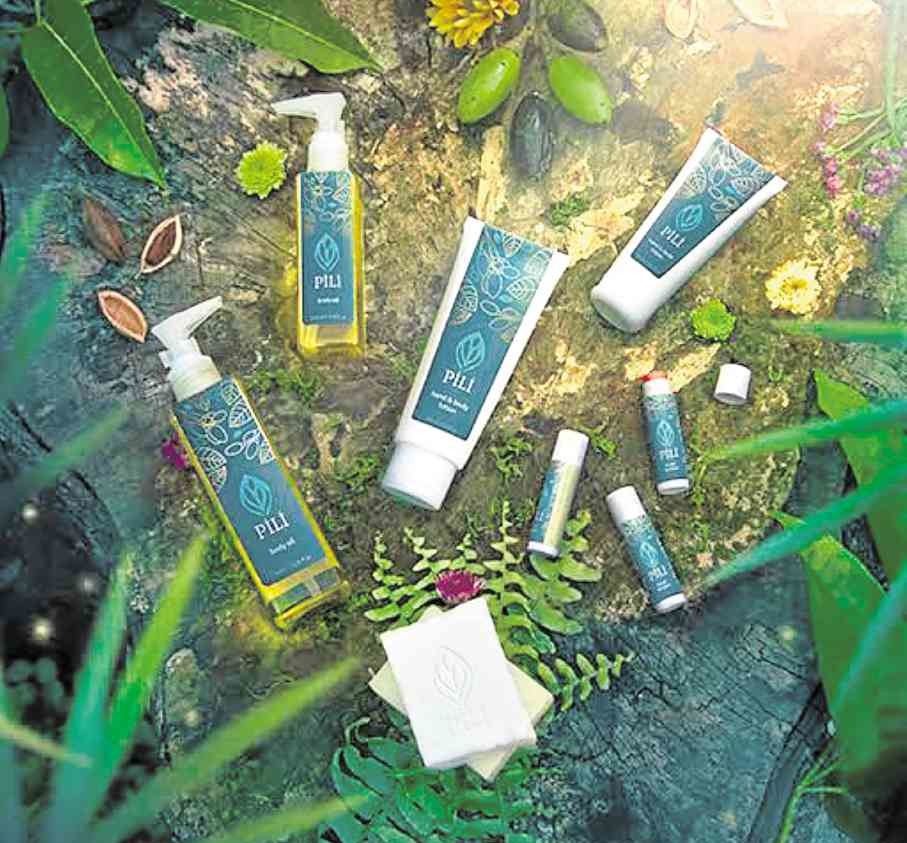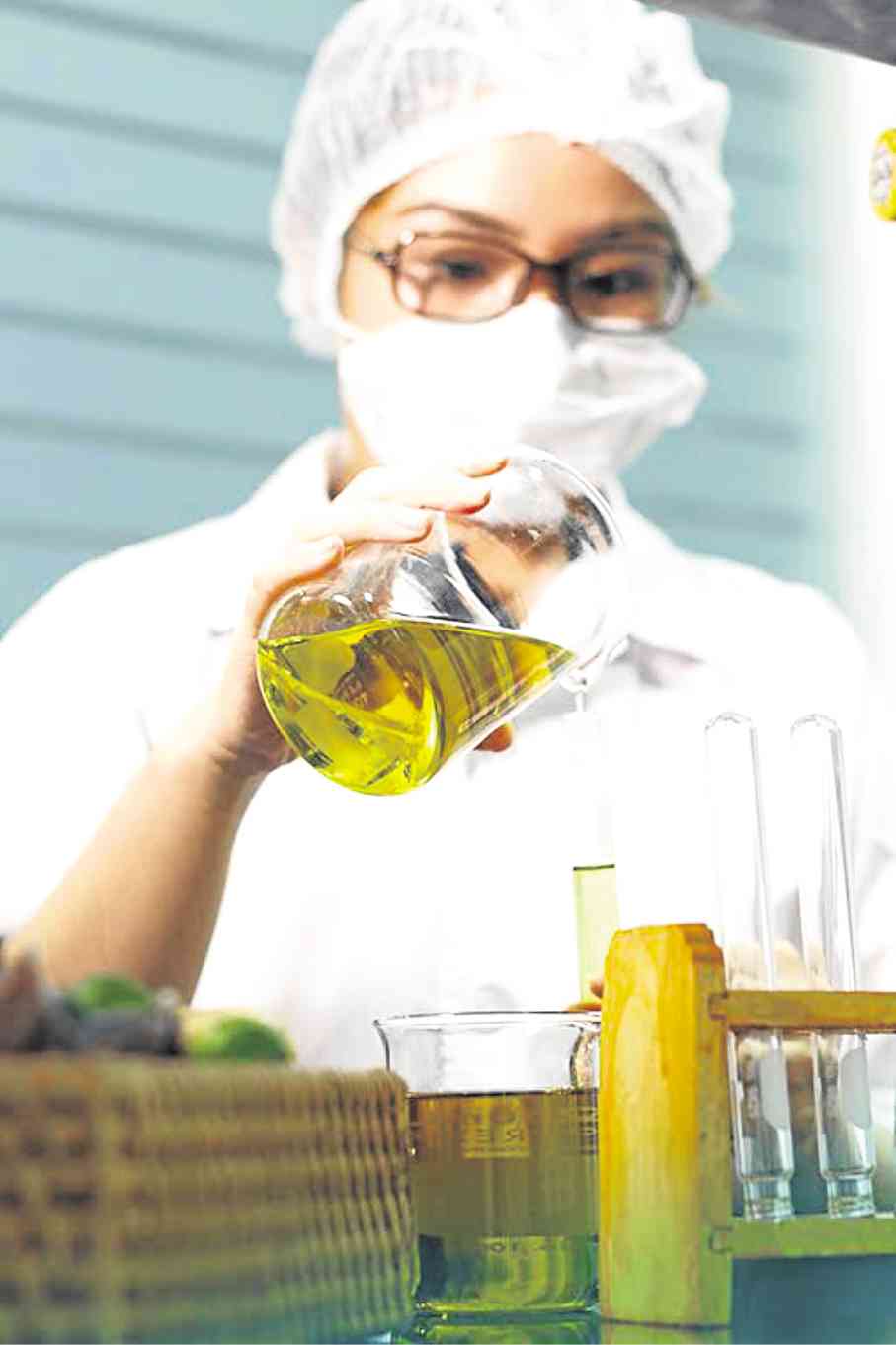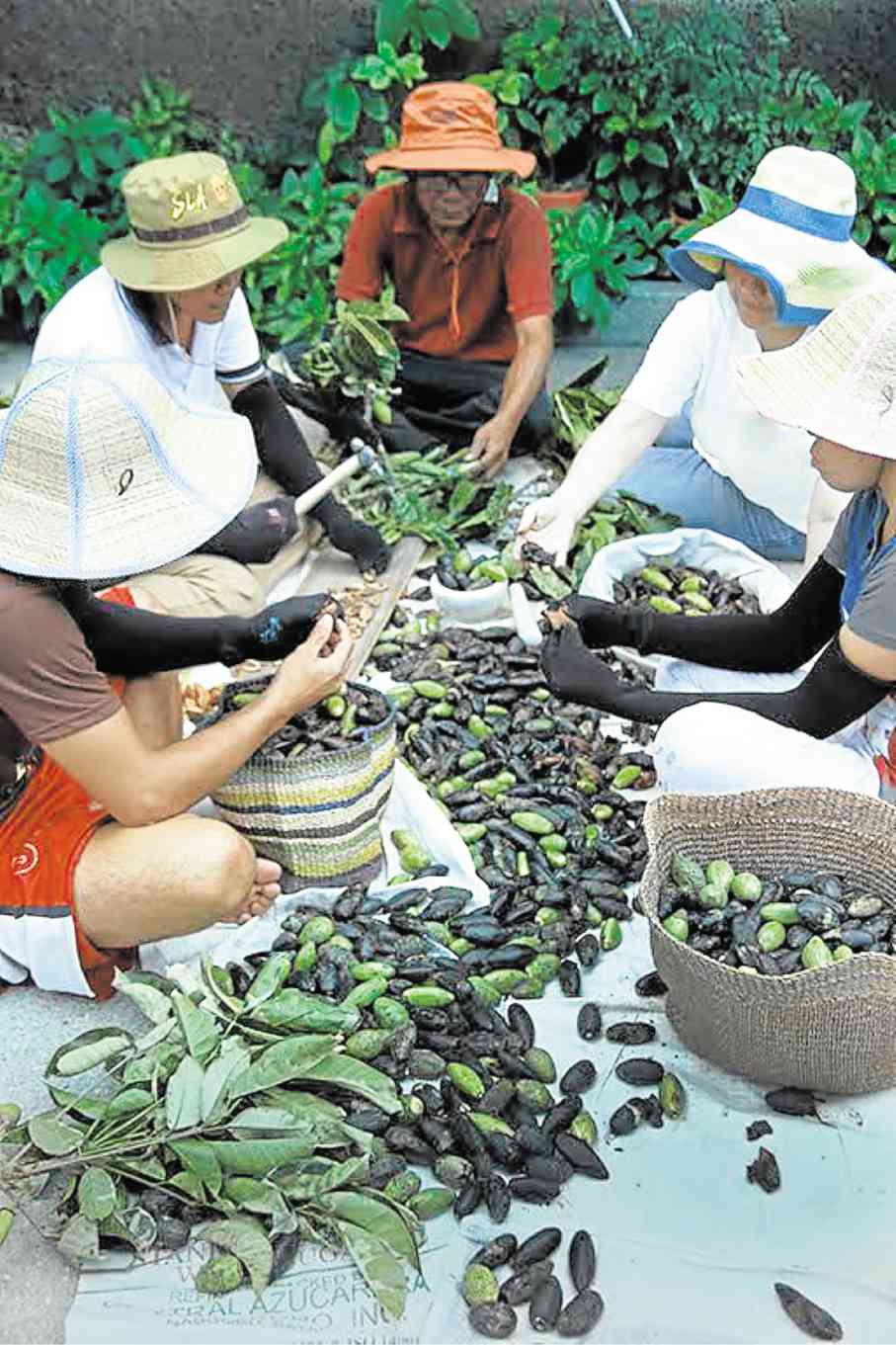Braving the global cosmetics market through pili
With great potential seen in the country’s prized pili tree, the Philippines, a large consumer market of beauty and personal care products, can now take a shot at the global cosmetic goods industry.
This is what the Tan family from Bicol, who owns the personal care brand Pili Beauty, wants to prove through their pili pulp oil-based beauty products.
Despite the brand’s slow growth in the country since its establishment in 2014, it will soon brave the international market, starting in the United States in July this year.
“My challenge for my daughter [Mary Jane] is to put the name of the Philippines in the international cosmetics industry. The Philippines is not popular in cosmetics. Even in the country, most of the brands here are foreign. But we can do it. We can make it to the global scene,” Pili Beauty director Rosalina Tan tells the Inquirer.
After the US, it plans to enter the Middle East market, particularly Dubai and Kuwait where its products are gaining optimistic reviews.
“We’re just starting. We want to make our [brand] known first. For the Philippine market, we’re looking at a double-digit growth. For the US, hopefully, five-digit growth compared to the local market. We’re keeping our fingers crossed,” says Pili Beauty chief operating officer Mary Jane Tan Ong.
Pili pulp oil
Aside from elemi oil, which helps keep the skin’s firmness and elasticity, the company prides itself in using the pili pulp oil. The latter is comparable to the popular and more costly argan oil and olive oil.
The base and active ingredient of Pili Beauty products is extracted from the nut’s pulp, not from the nut itself. This is to protect the pili processing industry, which is now confronted with the lack of nut supply and difficulty of plant propagation.
While Bicol’s flagship commodity is native to maritime Southeast Asia, the Philippines is the only country capable of the commercial production and processing of pili nuts. Besides Bicol, it is also grown in the Eastern and Western Visayas, Southern Tagalog, Caraga and Southern Mindanao.
The pili’s pulp, when soft-boiled, is normally eaten as vegetable by locals. But in most cases, it ends up being thrown, clogging creeks.
This prompted Tan, a staunch organic agriculture advocate, and a group of experts from the University of the Philippines Los Baños (UPLB) and the Department of Science and Technology (DOST) to conduct a study in 2004. Tan found out the medicinal benefits of the meticulously processed pili pulp oil.
Pili pulp oil contains high level of carotenoids, phytosterols and tocopherols (vitamin E), which are all powerful antioxidants. It is also rich in beta-carotene, a known source of vitamin A.
Clinical tests also revealed that pili pulp oil contains more skin conditioning agents and natural germicidal properties than argan oil and is more nutritious than olive oil.
In 2008, Tan who is also the chair emeritus of Organic Producers and Trade Association (OPTA), experimented on the use of pili pulp oil in beauty products such as soap and massage oil.
At first, she didn’t think of the discovery as a possible business venture until it gained popularity among her friends and colleagues.
“I just gave the products to my friends and colleagues in the rotary club. My intention was pure advocacy [on organic agriculture] since I had no business sense. Their feedback were mostly good. Thankfully, Mary Jane … utilized it for our business,” she says.
Increasing demand
In 2014, the Tan family started the commercial manufacturing of products made from pili pulp oil and elemi oil under their beauty product line Elemie Naturals Inc., which is now Pili Beauty.
Today, the brand carries more premium products such as body oil and essential oil blends, hair serum, bath soap, hand and body lotion, deodorant, lip balm, lipstick, lip and cheek tint.
In the past two years, the company has been joining trade events abroad where its products started gaining clients.
“When we joined a fair in Baltimore, Maryland in 2015, then Philippine Ambassador to the US Jose Cuisia tried our products and he liked it. Much to my surprise, he contacted us and ordered 400 more items, which he gave as presents to his peers in the international community. We got more orders abroad since then,” she says.
The brand has also gained the interest of local personalities like Vice President Leni Robredo and actress and television host Kris Aquino.
Pili production
For its supply chain, Pili Beauty has partnered with some backyard pili farmers and cooperatives in the provinces of Camarines Sur, Albay, and Sorsogon.
Since the company commits to the protection of the environment, the pili farmers only supply fresh pulps within the tree’s natural seasonal cycles.
The farmers also cultivate the trees strictly without utilizing harmful pesticides, chemicals or other synthetic materials.
“After getting the nut, they used to just throw the pulps away that pollute the waterways. But that practice has changed. Today, they are so happy because aside from getting additional income, they are now also conscious of the environment,” Tan says. —CONTRIBUTED





